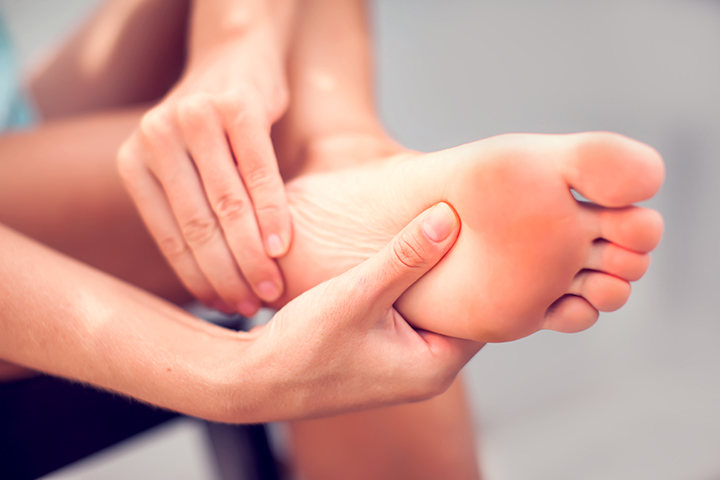
You have two small bones in each foot in the ball area, called sesamoids. The unique thing about sesamoid bones is they are free-floating bones with no rigid connection to other bones. The largest sesamoid bone is the kneecap. In the case of your feet, the sesamoid bones absorb pressure from walking and also help you to move your toes. Soft tissue and tendon damage around these tiny bones (about the size of a pea) can lead to a painful and debilitating condition called sesamoiditis.
7 treatments for sesamoiditis include the following:
- Switch to a different activity—Shifting weight to another area of the foot can reduce the inflammation around the sesamoid bones.
- Rest the foot—Rest, ice, and elevation will decrease pain and swelling.
- Take medication for pain and swelling—Ibuprofen or other OTC pain reliever will reduce pain and swelling.
- Massages—Massaging the ball of the foot will help to decrease pain.
- Wear soft-soled shoes—Sneakers and sandals with soft soles can help reduce impact stress.
- Pads and custom orthotic inserts—will help provide proper support for the sesamoid bones and isolate them from weight and pressure so they can heal.
- Tenex Health TX therapy—is excellent for treating soft tissue and tendon injuries like sesamoiditis.
Sesamoiditis can be challenging to diagnose and treat, and it may worsen over time without proper treatment, so be sure to contact your foot doctor. At Your Next Step, our team of board-certified podiatrists has access to advanced technologies, along with years of experience, to help diagnose and treat a variety of foot and ankle problems, including sports injuries, joint pain, toe deformities, nail fungus, chronic tendon pain, and skin problems. Dr. Eric Ricefield, Dr. Mark Yagodich, and Dr. Aliza V. Eisen provide high-quality foot and ankle care to patients in the greater Philadelphia area at our offices conveniently located in Ardmore, Paoli, and Downingtown, PA. Please contact us for more information or to schedule an appointment.
